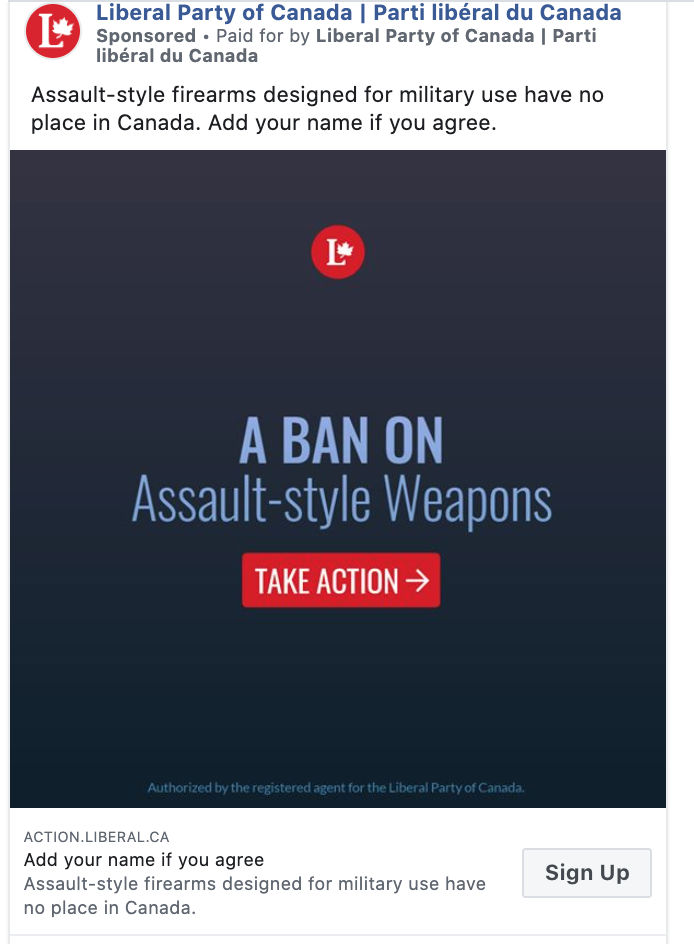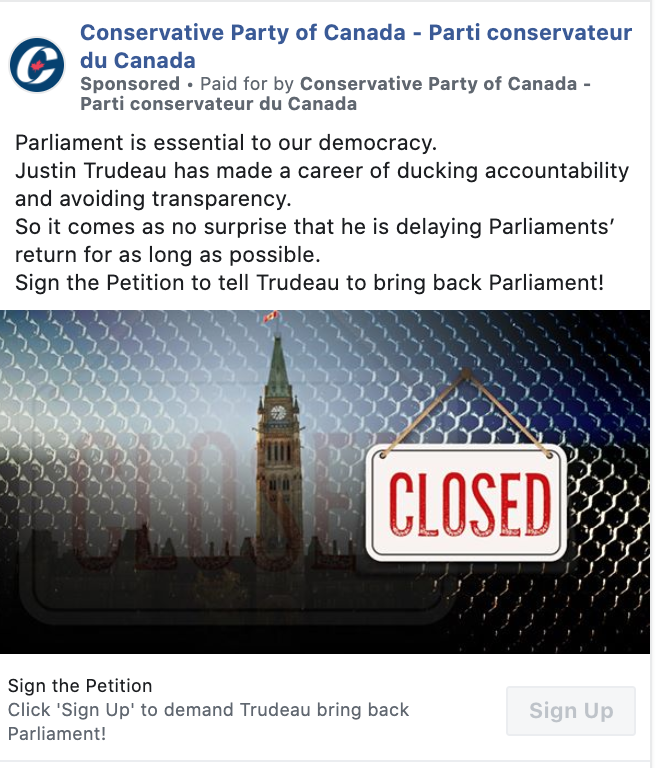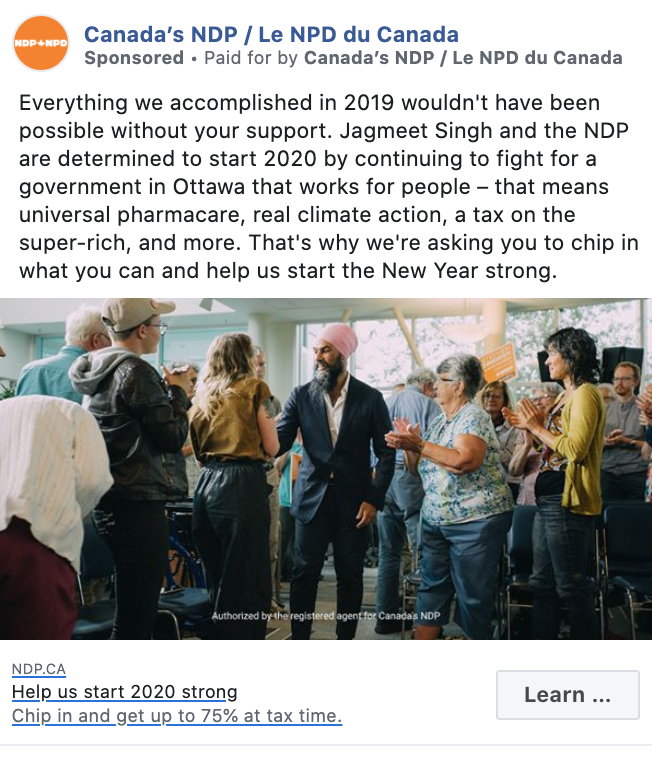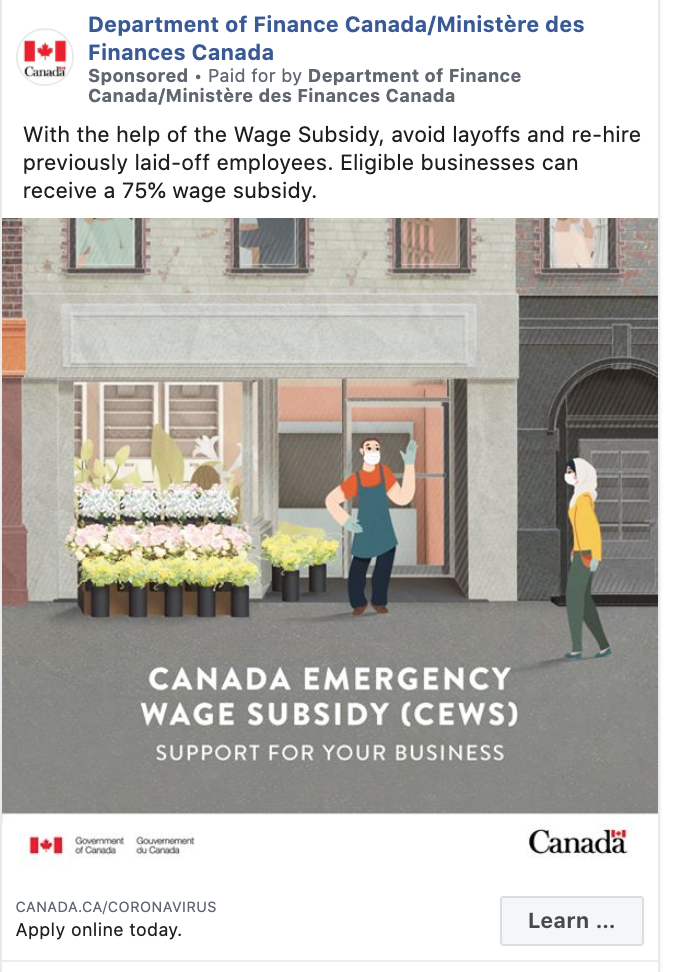A growing number of international brands, including Coca-Cola and Lululemon, have hit pause on Facebook advertising over the next month because of claims the tech giant isn’t doing enough to stop hate and misinformation from spreading on its platform.

The #StopHateForProfit boycott — led by civil rights and advocacy groups, such as the Anti-Defamation League and National Association for the Advancement of Colored People (NAACP) — aims to deprive Facebook of valuable advertising dollars until it addresses concerns that racists, white supremacists and other extremist groups use the social media site to foster hateful messaging.
But big businesses aren’t the only source of ad revenue for Facebook. Governments and political parties also use the site for targeted political advertising and to connect with potential donors.
In Canada, the federal government spent $5.4 million on Facebook ads in the 2018-19 fiscal year. The government didn’t say how much it spent in the most recent year.

Federal political parties were also big spenders, buying at least $4.4 million in ads over the past 12 months on Facebook.
So with names like Coca-Cola, Verizon, Levi Strauss and Lululemon joining the boycott, should the federal government and major political parties follow suit?
“There’s a need for the federal government to urgently take action relating to regulating social media platforms, including Facebook,” said the CEO of the National Council of Canadian Muslims Mustafa Farooq.
While Farooq says his organization doesn’t take a position on whether political entities should stop advertising on social media, he believes it’s important politicians think carefully about how money is spent, both private donations and taxpayer dollars.
“It’s critical from our perspective that governments and political parties who are considering thinking about regulating social media companies (think about) what kind of message it sends to also be spending advertising dollars on those platforms,” he said.

How much is spent?
An analysis of publicly available data from Facebook shows all of Canada’s major national political parties bought advertisements on the social media platform over the past year.
Much of this spending would likely have occurred during the federal election campaign last fall, though parties have continued to advertise since.
The Liberal Party of Canada was the most prolific spender, buying nearly $2.3 million in ads covering a wide range of topics, including calls for donations, surveys on political ideas, promoting the government’s assault-style weapons ban and initiatives aimed at the middle class.
- Stepfather of two missing N.S. kids charged with sexual assault of adult, forcible confinement
- 10 people abducted from Mexico mining site, confirms Vancouver-based firm
- Canadians have billions in uncashed cheques, rebates. Are you one of them?
- Is Canada making progress in knocking down internal trade barriers?
The Conservative Party of Canada spent the second highest amount: roughly $1.6 million over the last year.

Get daily National news
Their recent ads target many of the government’s decisions, including Prime Minister Justin Trudeau’s failed campaign to win a UN Security Council seat, the proposed firearms ban and closing Parliament during the novel coronavirus pandemic.
The NDP, which hasn’t advertised on Facebook since December and has no ads currently running, spent the third highest amount of all federal political parties, at about $450,000.
Its recent advertising focused almost exclusively on fundraising, though it did highlight some of the party’s key priorities, including universal pharmacare, climate action and taxing the “super-rich.”
The Canada Revenue Agency spent about $100,000 over the past year, while the Canadian Armed Forces spent close to $180,000.
The Department of Finance, which spent roughly $250,000 on ads in the last year, is among the biggest government spenders, although some ads may not be included in the Facebook data due to how it is categorized.
Between June 22-28, the finance department spent more than $85,000, much of which was targeted at Canadians and businesses telling them how to access COVID-19 assistance programs.
Global News asked both the Liberals and Conservatives if they were reconsidering advertising on Facebook in light of the boycott. The Conservatives did not respond in time for publication and the Liberals did not answer the question directly.
“The Liberal Party believes that we should always aim to unite Canadians, rather than sow division for political gain, and that hateful and harmful content has no place on social media platforms,” a party spokesperson said in a written statement.
Important for reaching Canadians
The federal government did not say if it intends to join the campaign boycotting Facebook advertising.
It did, however, say advertising is a valuable tool for consulting and informing Canadians of important policy decisions.
The government also said social media spending, including Facebook advertising, is just one aspect of its outreach efforts, which include advertising in physical newspapers and print media, internet sites other than social media, radio and television.
The government also recently earmarked $30 million in COVID-19 response advertising, including ads in 15 different languages and nearly 1,000 newspapers.
“Advertising is essential for the government of Canada to communicate and engage with Canadians, whether in the development of our policies and programs or in the services we provide, and we are committed to meeting Canadians on the platforms where they are at,” said Jeremy Link, a spokesperson for Public Service and Procurement Canada.
And while Farooq takes no official position on whether the government should stop advertising on Facebook, he said far more needs to be done to stop hate and misinformation on social media.

He said research in Canada and other developed countries has shown extremists use online platforms to propagate their hateful messaging, recruit new members and incite individuals to act violently toward racialized communities.
He cites the example of Alexandre Bissonnette — a man fixated with far-right ideology who killed six worshipers at the Islamic Cultural Centre in Quebec City in January 2017 — as an example of how online forums can contribute to radicalization and extreme violence.
Farooq believes the government has a responsibility to develop “modern legislation to deal with modern problems” and that it’s not good enough to simply rely upon the goodwill of social media companies to regulate themselves.
“The maelstroms that they create are a public safety concern to many Canadians,” he said.
The Prime Minister’s Office did not say if the government is reviewing its Facebook ads in light of the recent boycott. It did, however, say the minister of heritage is mandated with creating new regulations, including stiff penalties, for social media companies that do not remove illegal content, such as hate speech, from their platforms.
“We believe that social media platforms have the important responsibility to ensure an accepting and inclusive environment online. However, we have seen a number of examples where platforms have failed to uphold this important responsibility,” said Trudeau spokesperson Alex Wellstead.
Wellstead also pointed to several ad campaigns the government is currently running, including for COVID-19 mental health and financial aid programs, plus efforts to fight lyme disease.
Facebook, meanwhile, said it has invested billions of dollars in technologies designed to detect and remove hateful content from its platform. It also said it opened itself up to outside experts to review and update its policies, while working to make its efforts more transparent.
“The investments we have made in (artificial intelligence) mean that we find nearly 90 per cent of hate speech we action before users report it to us, while a recent EU report found Facebook assessed more hate speech reports in 24 hours than Twitter and YouTube.,” a Facebook spokesperson said in an emailed statement.
“We know we have more work to do, and we’ll continue to work with civil rights groups (and) other experts to develop even more tools, technology and policies to continue this fight.”
— With files from The Canadian Press.











Comments